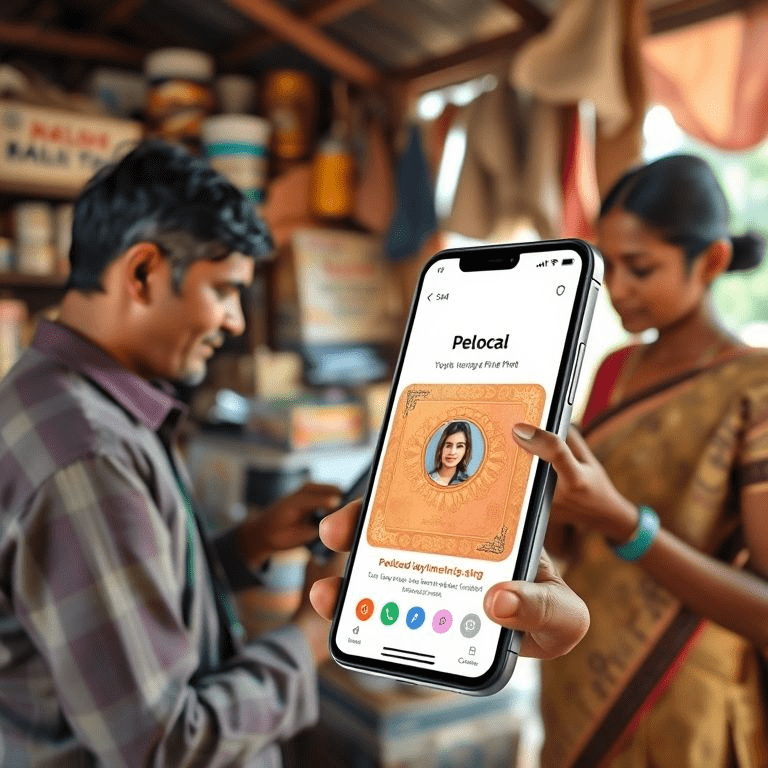Introduction
Fintech startup Pelocal, headquartered in India, has raised $5 million in fresh funding led by Unleash Capital Partners, Unicorn India Ventures, and a group of angel investors. The capital injection is aimed at bolstering the startup’s push into new geographies, expanding its product suite, and delivering enhanced digital financial services. This investment marks a significant step in Pelocal fintech expansion across India’s rapidly growing digital finance ecosystem.
Background: The State of Indian Fintech & Pelocal’s Position
- Fintech in India: India is one of the fastest growing fintech markets globally, with hundreds of millions of users adopting digital payments, neobanking, microloans, insurance, and investment platforms. Government and regulatory bodies, like RBI and others, have been supportive of fintech innovation, though regulations around KYC, data privacy, lending, and transaction monitoring continue to evolve.
- Pelocal’s business model: Pelocal (name possibly derived from “peer local” or “personal local”) operates with a vision to bring digital financial services—payments, savings, perhaps credit or micro-financial tools—to local, semi-urban, rural, and small town India. Its aim is to be more inclusive, leveraging mobile apps, minimal friction onboarding, and offering services that may combine financial tools with local merchants or community integration.
- Previous traction: Prior to this latest raise, Pelocal had built a base of users and merchant partners in a few pilot markets; developed partnerships for payments infrastructure; demonstrated product engagement with remittance, bill payments, UPI services, and small lending. It had also formed tie-ups with local banks or NBFCs for compliance, and had developed basic risk management capabilities.
What the Funding Will Enable: Plans Under Pelocal Fintech Expansion
- Product growth: Pelocal intends to roll out several new fintech product lines—possibly microcredit for underserved segments, savings and investment options, merchant financing, and insurance/distribution tie-ups. The startup also plans to enhance the app’s UI/UX, offer better analytics, tools for financial literacy, and integration with government schemes.
- Geographic scaling: With the fresh funds, Pelocal plans to expand its operations into more states across India, especially Tier-2 and Tier-3 cities where digital financial penetration is lower but growth potential is high. It may also launch localized features (multiple languages, local merchant partnerships).
- Infrastructure & compliance: Part of the capital will be invested in building stronger backend systems, fraud detection, risk frameworks, KYC/AML compliance, cybersecurity, and scaling server/transaction capacity. As transactions grow, infrastructure must scale while maintaining reliability and security.
- Team expansion: Hiring across product, engineering, risk, customer support, compliance. Possibly opening new offices, training local staff, and investing in training to handle financial regulation and customer protection.
Reactions & Expert Commentary
- Investor views: Unleash Capital Partners and Unicorn India Ventures are bullish on deep fintechs that serve the “last-mile” or underserved segments. They see Pelocal’s model as aligned with India’s aim to increase financial inclusion, especially given UPI’s success, increased smartphone adoption, Internet penetration, and appetite for digital banking alternatives.
- Industry experts: Analysts observe that while India has many fintechs, few have successfully scaled in Tier-3/4 towns with profitable unit economics. Key challenges include credit risk, low transaction volumes, high customer acquisition costs, and regulatory overheads. Pelocal’s ability to manage these will be crucial.
- Customer perspective: For small merchants, rural customers, and semi-urban users, trust, simplicity, local customer service, and transparency are key. Pelocal’s ability to deliver smooth user experiences, minimal fees, and reliable operations will influence adoption.
Impact & Future Outlook
- Financial inclusion & competition: Pelocal fintech expansion could contribute meaningfully to financial inclusion—helping more people access savings, credit, bill payments and other financial services via digital channels. It might also push more fintechs to focus on underserved areas rather than only big cities.
- Competitive pressure: Existing neobanks, payments companies, and regional fintech players may respond by enhancing offerings, reducing fees, or improving UX in rural markets. Pelocal may differentiate via local insights, community engagement, trust, and product relevance.
- Regulatory environment: As Pelocal grows, it will face regulatory scrutiny—from KYC, data privacy, consumer protection laws, RBI regulations on digital lending. Ensuring compliance, transparency, and user data security will be vital not only for reputation but for legal stability.
- Technology & scale: Deploying scalable, reliable, secure systems is essential. Also, leveraging AI/ML for credit scoring, fraud prevention, personalization could improve risk profiles and reduce losses. Pelocal might also partner with banks, NBFCs, or insurance firms to extend offerings without absorbing all risk in-house.
- Timeline: Over the next 12-18 months, Pelocal is likely to roll out multiple product verticals, deepen its reach in tens of new districts/states, show growth in transaction volumes, possibly profitability metrics, or unit economics. If all goes well, further funding rounds may follow for large expansion or regional dominance.
Conclusion
The fresh $5 million funding gives Pelocal the runway to seriously scale its vision of broad digital financial inclusion in India. As the startup pursues product expansion, infrastructure build-out, and entry into new geographies, the success of this Pelocal fintech expansion depends on balancing growth with regulatory compliance, risk management, and building trust among users. The opportunity is large—but so are the challenges. If executed well, Pelocal could become a notable player in India’s next wave of fintech growth.







